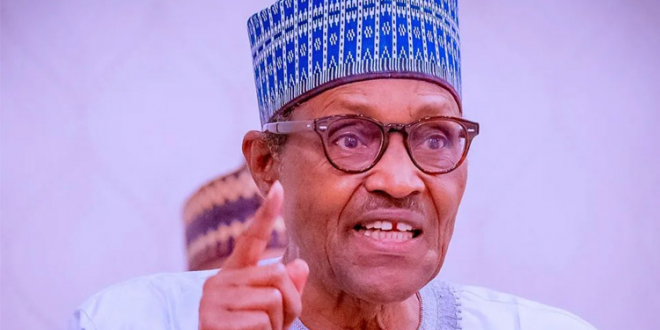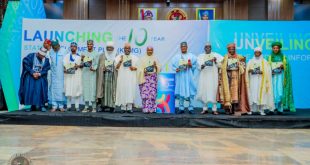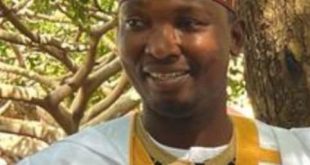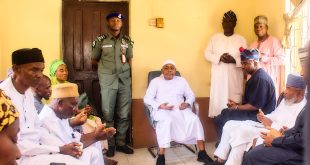By SALISU NA’INNA DAMBATTA
At the just-concluded 5th UN-inspired Conference of the Least Developed Countries (LDCs) in Doha, Qatar, President Muhammadu Buhari highlighted the negative effects of debt to development on poor countries and advocated for a fairer and freer trade relationship between the developed countries of the world – loosly the G20 – and their 46 counterparts in the least developed category..
During the 5th United Nations Conference on the Least Developed Countries (LDCs), President Buhari and his peers from around the world gathered and charted the way forward as the decade of action for the implementation of the 2030 Agenda for Seventeen Sustainable Development Goals (SDGs) eats away, with less than eight years to 2030.
In an address which truly made hm a strong voice for the LDCs, President Muhammadu Buhari listed obstacles that could hinder the achievement of the laudable targets of the SDGs for the Least Develped Countries, including and especially the lopsided global financial structure which forced most of such countries into heavy crippling debt. He proferred solutions for the challenges.
“The possibility of achieving the SDGs remains bleak for many countries, particularly, the Least Developed Countries. The difficulties in achieving the SDGs are numerous and were further compounded by the COVID-19 pandemic, the continued threat of Climate Change, and recently the Russia-Ukraine conflict,” the President observed.
He said that the developmental vulnerabilities and challenges stalling development in LDCs which pose huge obstacles to their development efforts were not always of their making. He said that there is a need for speedy and comprehensive assistance package aimed at unlocking their potentials and bolstering their socio-economic resilience. According to President Buhari, ‘‘This assistance can be provided within the framework of the Doha Programme of Action which is designed to help LDCs exit their current classification.’’
Another solution proffered by the President to minimise or even erase the difficulties, he urged developed countries, civil society actors, the private sector, and the business community to provide the necessary resources and capacity to deliver development outcomes, especially and specifically in the economic, social, and environmental targets of the 2030 Agenda.
President Buhari equally foressees that less obstacles for participating in global trade by LDCs through duty-free and quota-free market for their products can lead to their integration in regional and global value chains, with all the advantages doing so entails for the world.
The President recommended, “the adoption of a global coordination mechanism to systematically monitor illicit financial flows and engender support for a United Nations International convention on tax matters to eliminate tax base erosion and profit shifting, tax evasion, capital gains tax and other tax abuses as essential to achieving the SDGs and promoting security and economic prosperity.
An entry on the United Nations website said that, “the category of least developed countries (LDCs), was officially established in 1971 by the UN General Assembly with a view to attracting special international support for the most vulnerable and disadvantaged members of the UN family.”
Another posting on the site stated that, “the 46 current LDCs are home to 880 million people, which is 12 percent of the world population. The countries face severe structural impediments to growth and account for less than 2 percent of world GDP and around 1 percent of world trade.”
It is important to note that in line with the criteria for inclusion contained in the 2021 edition of the LCD Handbook, our country is rich enough, or not so poor, as to be included among those 46 LDCs, which comprise Afghanistan, Angola, Bangladesh, Benin, Bhutan, Burkina Faso, Burundi, Cambodia, Central African Republic, Chad, Comoros, Democratic Republic of the Congo, Djibouti, Eritrea, Ethiopia, Gambia, Guinea, Guinea-Bissau, Haiti, Kiribati, Lao People’s Dem. Republic, Lesotho, Liberia, Madagascar, Malawi, Mali, Mauritania, Mozambique, Myammar, Nepal, Niger, Rwanda, Sao Tome and Principe, Senegal, Sierra Leone, Solomon Islands, Somalia, South Sudan, Sudan, Timor-Leste, Togo, Tuvalu, Uganda, United Republic of Tanzania, Yemen, Zambia.
However, it is on record that Botswana, Cabo Verde, Equatorial Guinea, Maldives, Samoa and Vanuatu have exited the LDCs category after reviewing their status by the Committee for Development Policy (CDP), which is a subsidiary of the United Nations Economic and Social Council. The CDP reviews the status of countries every three years.
It is hoped that more of the African and Asian countries in the LDCs grouping will exit it in the next seven years of this decade for action in the implementation of the 2030 Seventeen Social Development Goals (SDGs).
 THESHIELD Garkuwa
THESHIELD Garkuwa




